 |
 |
 |
 |
 |
 |
| |
||||
NEW!
|
Contributors |
|||
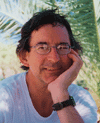 |
I have been a lexicographer since 1980, following a short
and not very brilliant career as an academic, then as an English language
teacher. Although I got into the dictionary field completely by accident,
I've been lucky enough to be involved in all the major developments over
the last 20 years or so. I worked for a time at COBUILD during the earliest
days of corpus lexicography, then for over ten years at Longman, and most
recently I have been dividing my time between Macmillan's exciting dictionary
publishing programme and my own business as a trainer and project manager.
As Managing Editor at Longman Dictionaries (1984-1994), I was responsible for several big dictionary projects, including the Longman Dictionary of Contemporary English (1987 and 1995 editions), and the Longman Language Activator (1993). Since 1998, I have been a lexicographic consultant for Bloomsbury Publishing Plc, who planned and wrote the Macmillan English Dictionary for Macmillan. As well as designing, editing, and project-managing dictionaries, I've been very involved in the design and collection of several major corpora, including the Longman Learner Corpus (the first of its type, which we started developing in the late 1980s), and the British National Corpus. I've also worked with computer scientists and software engineers in the creation of computational tools for analyzing the data in corpora, most recently the Word Sketch Engine, a state-of-the-art corpus query system developed by my colleague Adam Kilgarriff. Over the past 15 years or so, I have trained dozens of lexicographers, and also done quite a lot of university teaching in this field. Throughout the 1990s, I taught on lexicography courses at the University of Exeter, and in 2002-2003 taught on the MSc programme in Lexical Computing and Lexicography at the University of Brighton. For the past five years, I have been working with Sue Atkins (probably the world's leading bilingual lexicographer) and Adam Kilgarriff (a brilliant computational linguist) in our own company, Lexicography MasterClass Ltd (LexMC). LexMC has run training workshops in lexicography and lexical computing (in venues such as South Africa, Denmark, China, Japan, and the UK), provides a corpus-development service, and manages dictionary projects for other institutions. Our annual Lexicom workshop is now in its fifth year, and our most recent venture was managing a major new project (funded by the Irish government) to produce a new, corpus-based English-Irish dictionary. I have written numerous papers on corpus-based pedagogical lexicography, and I also wrote a regular column for about three years on aspects of corpora in language learning for the Pilgrims' webzine Humanizing Language Teaching. Apart from writing dictionaries, I train regularly in T'ai Chi, I'm trying to learn Spanish and (to a more limited extent) Japanese, and I am active in local politics (as a member of an environmental group opposing inappropriate development in Canterbury, where I live). I also like movies and watching (but not playing) cricket, and wrote The Dictionary of Cricket (OUP) in 1995. My wife Maggy is a writer and editor, and her most recent book is the 4th edition of the Palgrave Macmillan Dictionary of Women's Biography. Our son Raphael is 25 and works in London for Accidental Records – a small record company owned by the musician Matthew Herbert – as well as moonlighting as a DJ under the name Raf Daddy. Our daughter Jess is 20, and doing a degree in Classics at Leeds. Dictionaries have improved enormously in the last 25 years, but I'm convinced there is still plenty of scope for making them even better – and this is why working with dictionaries is always so interesting and challenging. As the father of modern computing, Alan Turing, once said: 'We can only see a short distance ahead, but we can see plenty there that needs to be done.' |
|||
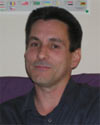 |
Philip Kerr |
|||
 |
Kerry has a first degree in computational linguistics and an MA in theoretical linguistics from the University of Manchester, specialising in syntactic theory. For several years she worked as a researcher at Manchester and Essex universities, where in connection with European projects on machine translation, she was involved in computational lexicography, co-ordinating research in computational descriptions of compounds and collocations, and presenting her work in various international academic contexts. In 1993 she joined Cambridge University Press as a lexicographer / editor and grammar consultant, and worked on a large number of Cambridge learner's dictionaries, including the English Pronouncing Dictionary, the Cambridge International Dictionary of Phrasal Verbs and the Cambridge Learner’s Dictionary in print and CD-ROM versions. In June 2001 Kerry moved to York, where she now works as a freelance editor / lexicographer and is involved in a range of dictionary and grammar projects. Among the publications she has contributed to are Advanced Grammar In Use (2nd Ed.) and the Cambridge Advanced Learner's Dictionary for Cambridge University Press, the Cobuild Elementary English Grammar (2nd Ed.) for Collins, Best Practice for Thomson Heinle, and for Macmillan Education: Inside Out, The Business, Macmillan Phrasal Verbs Plus, Macmillan School Dictionary, Macmillan Diccionario Pocket and MED CD-ROM. As well as being the regular author of the Macmillan Dictionary website's popular Buzzword column, she regularly writes for MED Magazine and co-authors grammar reference material for OneStopEnglish. She is the author of a book on new words in English, Brave New Words, published by Pan Macmillan. Most of her spare time is spent looking after her two sons Tom and Sam, though she enjoys walking, swimming and any opportunity to travel!
|
|||
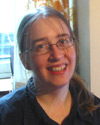 |
I always find it difficult to answer the question ‘What do you do?’. My background is essentially English language teaching – I really enjoyed the creative aspect of making lessons for my students. Then I became a lexicographer at Cambridge University Press, where a large part of my time was spent developing the CD-ROM version of the Cambridge International Dictionary of English. This, in turn, led to web design and eventually software development, specifically programming in Flash. Learning to program is very much like learning a new language; there is a specific grammar and new vocabulary to learn. At the same time, it's important to bear in mind the programmer's dialogue with the user and to make interactive activities useful, relevant and fun for learners, no matter what their technical ability or experience. In recent years, I've been involved in the Macmillan English Dictionary as multimedia and map editor. I've also written content for the CD-ROMs that accompany the New Inside Out series (Beginner and Upper Intermediate levels), and recently completed a CD-ROM of computerized IELTS practice tests for Ready for IELTS. Whatever project I'm working on, whether it's proofreading, writing content, compiling glossaries, designing web pages or creating CD-ROMs, it all stems from my first 'real' job as a secondary school teacher in Lithuania fifteen years ago. As a freelancer, I enjoy the benefits of flexible working hours that enable me to chase after my three small children (all boys!). There's not a lot of time in my life for much else, but I do make a point of attending the Perth Russian Conversation Group every Saturday morning.
|
|||
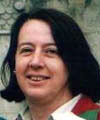 |
Like most people who write dictionaries for a living, I became a lexicographer by accident. After several years working as an ELT teacher, course organiser, and as a translator and teacher of Italian, I was looking for a change. A friend spotted a job ad for bilingual lexicographers at Longman. I applied and got the job, and discovered something I had never suspected – that dictionaries are written by people like me. After two years at Longman I moved to COBUILD, where I worked on monolingual learner’s dictionaries. Since going freelance in 1999, I have contributed to a variety of monolingual and bilingual dictionaries, including the Macmillan range of dictionaries, while continuing to do translations from Italian. For several years, I wrote a weekly web article about English and I now answer readers’ queries and write book reviews for MED Magazine. I’m a keen gardener and for several years I’ve had an allotment where I do battle with the Midlands climate, clay soil, and marauding slugs and pigeons in an attempt to grow fruit and vegetables for the family. When it’s too cold, wet or dark to garden (about half the year) I sing in a choir and go to yoga classes. |
|||
|
||||
| Meet the Editor | ||||
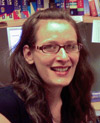 |
Sharon Creese
I work across the range of Macmillan dictionaries – both print and electronic – as well as on the various related resources, like dictation activities, e-lessons and, of course, MED Magazine. I have a strong editorial background having worked for many years as a journalist, technical writer and editor in fields ranging from the automotive and engineering industries, to finance, healthcare and education. I lived for a year in Colombia as part of my Latin American Studies degree, and subsequently completed an Applied Linguistics Masters degree at the University of Newcastle, focusing on bilingualism among Spanish / indigenous-language speakers in Latin America. My interest in South America even extends to my pets – I have two chinchillas (native to the Andes) who take great delight in destroying everything in their path! |
|||
Cover illustrations by © JJAVA - Fotolia.com (Your Questions Answered), Martin Shovel (Book Review), © treenabeena - Fotolia.com (Boo & Hooray Words), and IMAGE SOURCE (Feature) Cover design by Mairi MacDonald |
||||
| |
||||